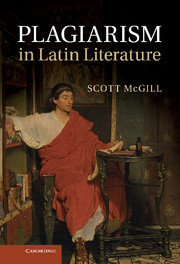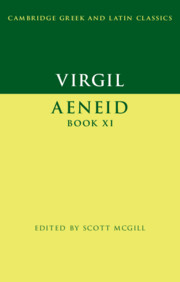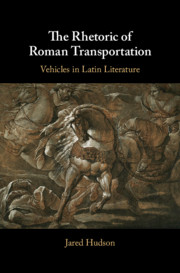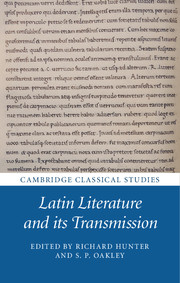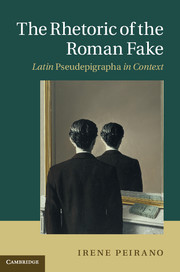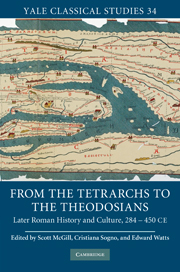Plagiarism in Latin Literature
In response to critics who charged him with plagiarism, Virgil is said to have responded that it was easier to steal Hercules' club than a line from Homer. This was to deny the allegations by implying that Virgil was no plagiarist at all, but an author who had done the hard work of making Homer's material his own. Several other texts and passages in Latin literature provide further evidence for accusations and denials of plagiarism. Plagiarism in Latin Literature explores important questions such as, how do Roman writers and speakers define the practice? And how do the accusations and denials function? Scott McGill moves between varied sources, including Terence, Martial, Seneca the Elder and Macrobius' Virgil criticism to explore these questions. In the process, he offers new insights into the history of plagiarism and related issues, including Roman notions of literary property, authorship and textual reuse.
- Proposes a new appraisal of the history of plagiarism
- Expands the study of imitation in Latin literature by examining the difference between imitation and plagiarism
- Examines a wide range of authors and texts across Latin literary history
Reviews & endorsements
'McGill provides a valuable overview of the Romans' understanding of literary plagiarism and offers various definitions of the concept. Students of Latin literature will learn much from these pages, especially about the relationship of Latin literature to its illustrious Greek predecessor... After reading McGill's clear, thorough, and nuanced treatment, one not only understands more clearly this important topic but also appreciates the distinctive role it played in various genres and periods of Latin literature … Highly recommended. Upper-division undergraduates through faculty, general readers, and professionals.' M. J. Johnson, Choice
'[This book] significantly advances our awareness of the extent to which processes of textual creation were theorized and explicated by Roman authors.' Joseph A. Howley, Language and Literature
Product details
August 2012Hardback
9781107019379
256 pages
229 × 152 × 16 mm
0.51kg
Available
Table of Contents
- 1. The ancient and the modern: approaching plagiarism in Latin literature
- Part I. Accusations:
- 2. Blame and praise: plagiarism and self-promotion in Latin prefaces
- 3. Playing the victim: Martial on the plagiarism of his poetry
- Part II. Denials:
- 4. Plagiarism on the stage: Terence, literary controversy, and the theater
- 5. A spectrum of innocence: denying plagiarism in Seneca the Elder
- 6. Saving the hero: Virgil, plagiarism, and canonicity
- Conclusion.

